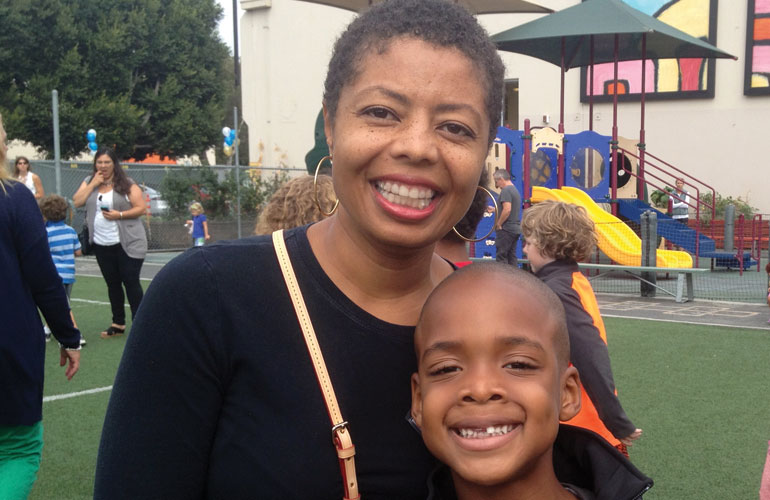I am not the first single, non-famous, Black woman to adopt in America, but it sometimes seems that way. When I started my adoption journey, I had no clue how hard it would be to wrestle against cultural norms by adopting a baby. I adopted for a multitude of reasons, none of which included waging a one-woman campaign to inform other Black women about adopting. But, eight years later, here I am…responding to e-mails and returning phone calls from women I do not know. They heard that I adopted and want to know who, what, when, where, and how much it cost.
When I set out to learn about other single women of color who adopted, I knew that “the Black Venus” did it in the 1940’s and 1950’s. Josephine Baker adopted 12 children, resulting in her self-described “Rainbow Tribe.” Actress Robin Givens adopted her oldest child in the 1990s. Since I adopted my son, OWN debuted Raising Whitley, a reality series about comedienne/actress Kym Whitley’s unplanned adoption. Grey’s Anatomy‘s executive producer, Shonda Rhimes, who adopted two girls, published a memoir in 2015. But my search for non-celebrity women of color who had adopted led nowhere.
If I’d waited until 2009 to do my research, I would have been informed, by John Blake’s CNN.com article “Single Black Women Choosing to Adopt,” that some ordinary single, Black women do adopt — but only as a substitute for a man. With press like that, no wonder single women of color send up prayers for the motherless, get another degree, buy a home, take extravagant vacations, but do not adopt.
Not only was there a dearth of information, the myth that Black people do not adopt prevailed. We raise nieces, nephews, cousins, and grandchildren. We do not legally adopt outside of our family. In fact, two well-meaning relatives attempted to give me a reality check. Over a tasteless lunch, they tag-teamed me: Where are you going to put a baby? You need to have $10,000 in savings. You don’t have a boyfriend or a husband. They aren’t going to give you a baby. I wish I could write that I calmly explained that there are no income requirements for a public adoption and that single women are seen as equal candidates in the adoption process. But I was too stunned and could only utter that it was my life, my decision.
Luckily, I had a phenomenal adoption social worker who assured me that I’d make a good mother. Armed with that, and the support of close friends, I drew my own map to adoption. Step 1: Finish adoption training classes. Step 2: Get a crib; find a child-care provider. Step 3: Adopt a baby boy, aged zero to six months. Step 4: Allow family naysayers a role in my son’s life. Step 5: Share my story with other single women of color.
Under the best circumstances, adoption is as joyous as it is stressful. There are background checks, rotating social workers, endless paperwork, and the universal challenges of parenting, like potty training. But we must also overcome our own fears and steady the people around us who call us crazy for adopting the fabled “crack baby.” We are expected to explain why we want to adopt. I felt like it was the right thing to do. Public adoption is affordable. I could be wrong, but I doubt that white women, especially celebrities, must carry a cheat sheet in their purses. As open as this community is to the practice of adoption, the revelation of my son’s domestic adoption casts me as simultaneous outlier and brethren among my Caucasian brothers and sisters. Newsflash to white people: Black people do adopt, but when we do, there are few, if any, cameras to witness these random acts of humanity.
So what do I tell these Black women who call me, hungry for anything I can tell them about adoption? I might start with the first time I met my son. I nervously drove across town, not sure what to expect. What if he doesn’t like me? What if I don’t like him? Not the most politically correct questions, but I’m being honest. Before I knew it, I was standing on the doorstep with my social worker. She said that the foster mother was kind but protective, and then rang the bell. I recall little of the conversation that followed; my attention was claimed by a set of beautiful brown eyes as large as saucers. When he crawled toward me, I thought, he likes me and I like him. In that instant, I became mother to someone I was not related to.



